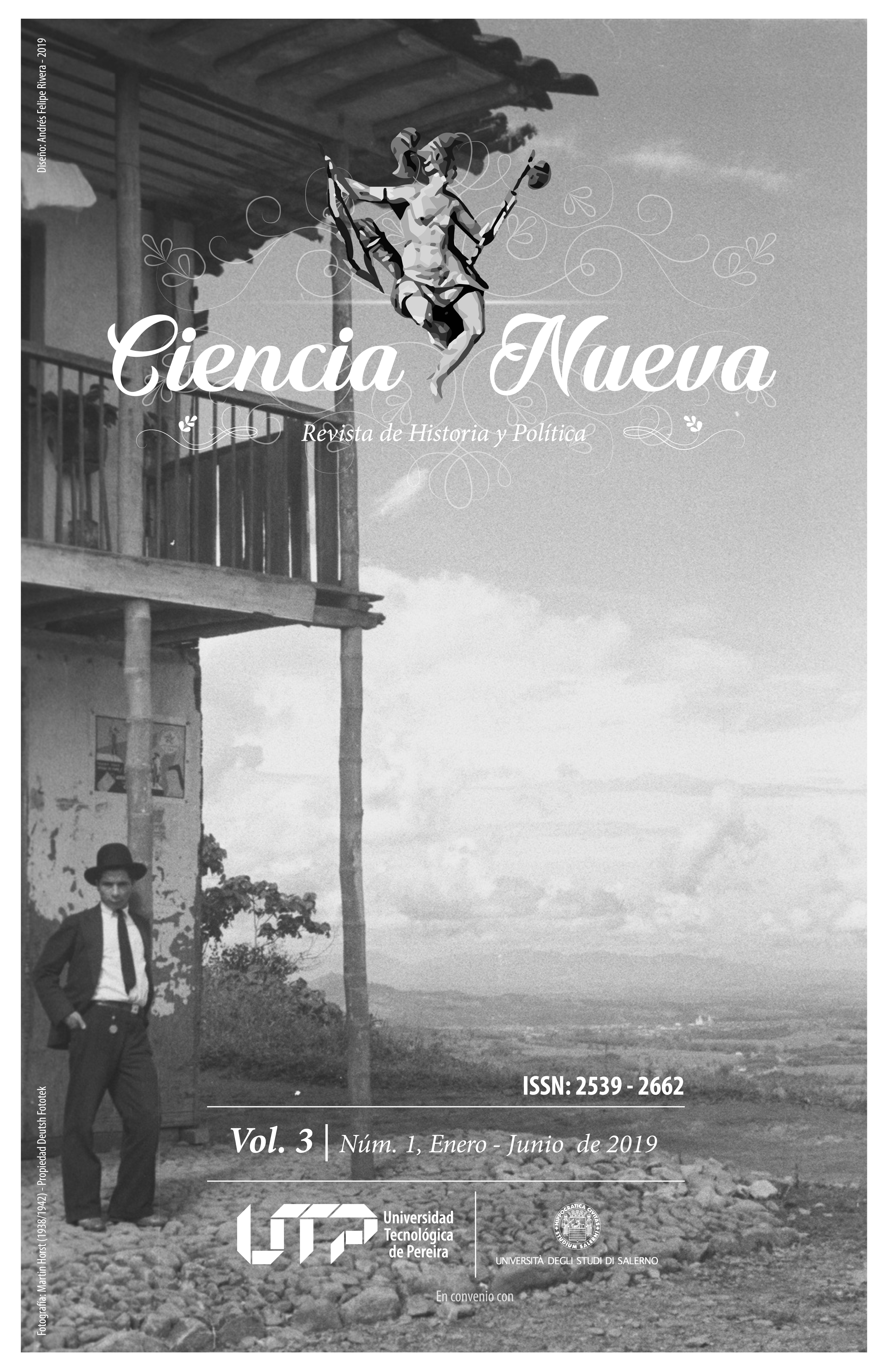The transnational feminist movement in the Americas in the 1930s
DOI:
https://doi.org/10.22517/25392662.22661Palabras clave:
transnational feminist movement, Americas, 1930s, Inter-American Commission of Women.Resumen
This paper aims to study how a transnational feminist movement emerged in the Americas and had a significant period of activity in the 1930s. It examines its goals and political strategies, as well as the impact of collective mobilization. Mobilizing collectively at the transnational and international level allowed feminists from the American continent to gain some victories as well as political legitimacy.
We will see how mobilizing collectively at the continental level served them as a strategy of struggle to acquire symbolic or material resources. At times, it increased the legitimacy of feminism that feminists were unable to obtain in their countries. The detour by the international was therefore extremely useful to them to put pressure on their governments. Besides, they did not conceive of their struggles in isolation. They believed that in order to obtain civil and political rights, but also the maintenance of peace on the continent, they had to build a collective struggle that transcended their borders.
Descargas
Citas
Primary sources:
Archive of the Ministry of Cultures, Quito, Ecuador.
Municipal Library of Guayaquil, Guayaquil, Ecuador.
National Library of Chile, Santiago, Chile.
National Library of the Argentine Republic, Buenos Aires, Argentina.
The Arthur and Elizabeth Schlesinger Library on the History of Women in America, Radcliffe Institute for Advanced Studies, Harvard University, Boston, United States.
The New York Public Library, New York, United States.
The Library of Congress, Washington, United States.
Secondary sources:
Alvarez, Sonia E. “Translating the global: effects of transnational organizing on local feminist discourses and practices in Latin America”. Meridians: feminism, race, transnationalism 1, n. º 1 (2000): 29-67.
Auza Néstor Tomás. Periodismo y feminismo en la Argentina, 1830-1930. Buenos Aires, Argentina: Emecé Editores, 1988.
Ehrick, Christine. “Madrinas and Missionaries: Uruguay and the Pan-American Women’s Movement”. In Feminisms and Internationalism, Mrinalini Sinha, Donna Guy & Angela Woollacott. Wiley, 1999.
Fraser, Nancy. “Transnationalizing the Public Sphere. On the Legitimacy and Efficacy of Public Opinion in a Post-Westphalian World”. In Transnationalizing the Public Sphere, edited by Kate Nash. Polity Press, Cambridge, 2014.
Goetschel, Ana María. Orígenes del feminismo en el Ecuador: Antología. Quito: CONAMU, 2006.
Grewal, Inderpal. Transnational America. Feminisms, diasporas, neoliberalisms. Durham & London: Duke University Press, 2005.
Hahner, June Edith. Emancipating the female sex: the struggle for women’s rights in Brazil, 1850-1940. Durham: Duke University Press, 1990.
Lee, Muna. “The Inter-American Commission of Women. A New International Venture”. In A Pan-American Life: Selected Poetry and Prose of Muna Lee. Univ. of Wisconsin Press, 2004.
Lavrin, Asunción. Women, feminism, and social change in Argentina, Chile, and Uruguay, 1890-1940. Lincoln, Neb.: University of Nebraska Press, 1995.
______. The ideology of feminism in the Southern Cone, 1900-1940. Washington, D.C. Smithsonian Institution Bldg., Washington 20560: Latin American Program, the Wilson Center, 1986.
Luna, Lola G. El sujeto sufragista, feminismo y feminidad en Colombia 1930-1957. Cali: La Manzana de la Discordia, 2004.
Macías, Anna. Against all odds: the feminist movement in Mexico to 1940. Westport, CT: Greenwood Press, 1982.
Marx Ferree, Myra and Aili Mari Tripp, ed. Global feminism. Transnational women’s activism, organizing, and Human Rights. NYU Press, 2006.
Miller, Francesca. “The International Relations of Women of the Americas, 1890-1928”. The Americas: A Quarterly Review of Inter-American Cultural History 43, n. º 2 (1986): 171-182.
______. Latin American women and the search for social justice. Hanover: University Press of New England, 1991.
______. “Latin American Feminism and the Transnational Arena”. In Women, Culture, and Politics in Latin America. Emilie Bergmann, Janet Greenberg, Gwen Kirkpatrick, Francine Masiello, Francesca Miller, Marta Morello-Frosch, Kathleen Newman and Mary Louise Pratt. University of California Press, 1992. doi10.1525/california/9780520065536.001.0001.
______. “Feminism and Foreign Policy in the Americas: Separate Conversations?”. WAWH Conference XXVI, California, June 3, 1995.
Offen, Karen, ed. Globalizing Feminisms, 1789- 1945, 1 edition. London; New York, Routledge, 2009.
Olcott, Jocelyn. Revolutionary women in postrevolutionary Mexico. Durham: Duke University Press, 2005.
Prieto, Mercedes & Ana María Goetschel. “El sufragio femenino en el Ecuador, 1884-1940”. In ¿Qué género tiene el derecho? Ciudadanía, historia y globalización, edited by Stefanie Kron & Karoline Noack. Berlín: Edition Tranvía, Verlag Walter Frey, 2008.
Rupp, Leila J. Worlds of Women: The Making of an International Women’s Movement. Princeton, N.J: Princeton University Press, 1997.
Sinha, Mrinalini, Donna Guy et Angela Woollacott. Feminisms and Internationalism. Wiley, 1999.
Sosa Estela Mary. El papel de las mujeres paraguayas en la Guerra del Chaco (1932-1935): relaciones de género en contexto bélico. Posadas, Misiones, Argentina: Editorial Universitaria, Universidad Nacional de Misiones, 2010.
Soto Shirlene. Emergence of the Modern Mexican Woman: Her Participation in Revolution and Struggle for Equality, 1910-1940. Denver, CO: Arden Press Inc., 1990.
Stoner, K. Lynn. From the house to the streets: the Cuban woman’s movement for legal reform, 1898-1940. Durham, Duke University Press, 1991.
Threlkeld, Megan. Pan-American Women: U.S. Internationalists and Revolutionary Mexico. University of Pennsylvania Press, 2014.
Tuñón Julia. Voces a las mujeres: antología del pensamiento feminista mexicano 1873-1953. México, D.F.: Universidad Autónoma de la Ciudad de México (UACM), 2011.
Descargas
-
Vistas(Views): 722
- PDF (English) Descargas(Downloads): 363
Publicado
Cómo citar
Número
Sección
Licencia
Para todos los artículos publicados en Ciencia Nueva, revista de Historia y Política, la titularidad de los derechos de explotación de los contenidos de la revista pertenece al autor o los autores.
Las obras de esta revista están bajo la licencia Creative Commons Reconocimiento-NoComercial-SinObraDerivada:




